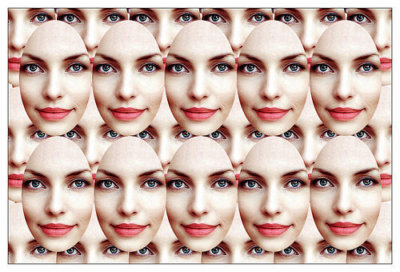What is Self-Concept? And How Can It Help You?

By: cea +
by Andrea M. Darcy
Have you ever found yourself looking in the mirror after a challenging experience and asking yourself, ‘Who am I?”. If so, you have come face to face with your self-concept.
What is ‘self concept’ in psychology?
Self-concept is hardly a new idea. Ancient eastern practices, for example, often talked about self-identity, and the question of ‘self’ has long been debated by philosophers.
Self-concept in modern psychological use refers to how you think about and see yourself. It contains all the beliefs, ideas, and perspectives you have of yourself.
This includes not just your present-day self, but your past and future selves (which you see through the filter of your present self in any case).
The ingredients of your self-concept
Things your self-concept can include are:
- sexuality (I’m heterosexual)
- gender (I’m female)
- culture and race (I’m Jewish)
- physical descriptors and abilities (I am tall, I run fast)
- mental abilities (I’m good at academics)
- spirituality and religion (I’m spiritual)
- social roles (I’m an aunt and social worker)
- personal traits/ character attributes (I’m a loud talker, I’m introverted)
- beliefs about self (people like me, I’m funny)
- existential statements (I’m a human being, I am one with all that is).
How is self-concept formed?
Our ‘self’ concept is largely influenced by our interactions with others.
This starts from when we are infants just realising we are a different object then those around us. It continues with our interactions with parents, teachers, role models, and peers.
Self concept is also created by our environments and experiences.
Why is self-concept such a big deal?
Self-concept is a huge field of study in psychology. It helps psychologists understand how humans develop, and how important our social interactions are.
For example, self-concept is the subject of many psychological ‘scales’ and questionnaires used to evaluate a child’s cognitive and language development, or an adolescent’s identity issues.
Bracken, a well-known school psychologist who developed several of the most-used scales, put it this way — self-concept “influences an individual’s current behaviours, and predicts an individual’s future behaviours”.
Can my self-concept change?
Self-concept tends to change with age. As children and adolescents, our self-concept can be flexible, as we are still figuring out who we really are and constantly comparing ourselves to others. As older adults, however, our self concept is more fixed. We know our personal values and are more self-aware.
There are also life changes that can heavily affect our self-concept. These include things like:
- loss and bereavement
- trauma
- abuse
- major accidents or illnesses.
Main theories of Self-Concept

By: muffinn
Many great names in psychology have investigated how we evaluate ourselves as individuals, including Carl Jung, Adler, Erickson, and Maslow.
But it is Carl Rogers, seen as the father of person-centred therapy, who is perhaps the most quoted in talks about self- identity. He saw three main concepts to self-identity. These are:
- self image – the way we see ourselves
- self-worth – the value we place on ourselves
- ideal self – what you wish you were actually like.
Bracken, however, used the following breakdown with his approach:
- physical (looks, fitness, health)
- social (how we interact with others)
- family (how we behave in our family)
- competence (how we manage basic needs of living)
- academic (school and intellect)
- affect (understanding of emotional states).
How can self-concept help me?
Your self-concept is an incredibly useful tool for helping you see where things are ‘not quite right’ for you. An example of this is when we look at our ideal self versus our present self-concept. If you always have an ideal self in mind that is vastly different from your daily self-concept, it is quite likely you have low self-esteem and could use learning some self-compassion.
Self-concept can also help us see how much a life change or trauma has affected us. Sometimes life change strengthens and clarifies our self-concept. But if you feel you’re losing your self-concept, it could be the experience has triggered an identity crisis and it’s time to seek support.
If you feel you have no self-concept, or that your self-concept changes all the time, then it can be a useful indicator of a personality disorder.
Can a counsellor or psychotherapist help me with self-identity?
A qualified counsellor or psychotherapist helps you not only understand your self-concept, but handle all the issues that can arise from problems with self-concept.
This can include low self-esteem, negative thinking, eating disorders, identity crisis, and borderline personality disorder.
Working with a good counsellor or psychotherapist can give you the unconditional positive regard that you need to align your concepts of your ideal self with your present-day self. A therapist helps you see yourself as you really are, including strengths you’ve overlooked and desires for the future you’ve suppressed.
Harley Therapy puts you in touch with highly qualified and experienced counsellors and psychotherapists in central London. We also connect you to Online therapists that can help you wherever you live.
Still have a question about ‘what is self-concept’? Use our public comment box below.






Its a mindset which we need to develop.